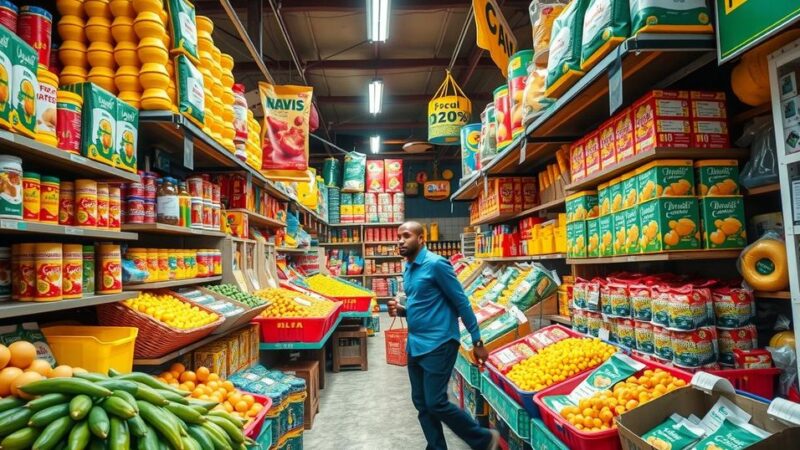Nigeria’s inflation rate decreased to 23.18% in February 2025, following a rebasing of the Consumer Price Index. Food inflation fell to 23.51%, with notable year-on-year declines in both urban and rural inflation rates. The economic effects of recent policy changes under President Bola Tinubu are evident, impacting inflation metrics significantly.
Nigeria’s inflation rate reported a decrease to 23.18 percent year-on-year in February 2025, as per the Nigerian Bureau of Statistics (NBS). This drop followed the rebasing of the Consumer Price Index to better reflect current consumption patterns. January’s inflation rate was reported at 24.48 percent, down from a significant 34.80 percent in December, marking the first considerable reduction in over ten years.
The food inflation rate in February 2025 stood at 23.51 percent, showing a notable year-on-year decline of 14.41 percent from February 2024’s rate of 37.92 percent. It should be noted that this decrease in food inflation is largely attributable to the rebasing of the CPI. Month-on-month, food inflation in February was recorded at 1.67 percent.
For the overall headline inflation, the month-on-month rate in February 2025 was 2.04 percent. Urban inflation saw a year-on-year figure of 25.15 percent, dropping by 8.51 percentage points compared to February 2024, while the month-on-month urban inflation rate was recorded at 2.40 percent. The twelve-month average for urban inflation was 32.22 percent, up by 4.28 percentage points from the previous year.
Rural inflation for February 2025 was 19.89 percent year-on-year, reflecting a decrease of 10.09 percentage points from February 2024’s 29.99 percent. On a month-on-month basis, the rural inflation rate was 1.16 percent, with the twelve-month average rising to 27.94 percent, representing an increase of 3.33 percentage points compared to February 2024.
Last year, inflation reached a 28-year high due to significant economic policy alterations implemented by President Bola Tinubu, which included the removal of costly subsidies and the devaluation of the naira. The NBS cautioned that price movement analyses must consider the consumption expenditure patterns that vary across states, implying that comparisons should be made with caution, as the weight assigned to food or non-food items can differ significantly.
In summary, Nigeria’s inflation has experienced a significant reduction, with the headline rate decreasing to 23.18 percent in February 2025. This denotes a substantial adjustment and reflects vital economic changes following policy implementations. The decline in food inflation is particularly noteworthy, while urban and rural inflation rates have also shown marked adjustments, indicating ongoing economic shifts within the country.
Original Source: allafrica.com






